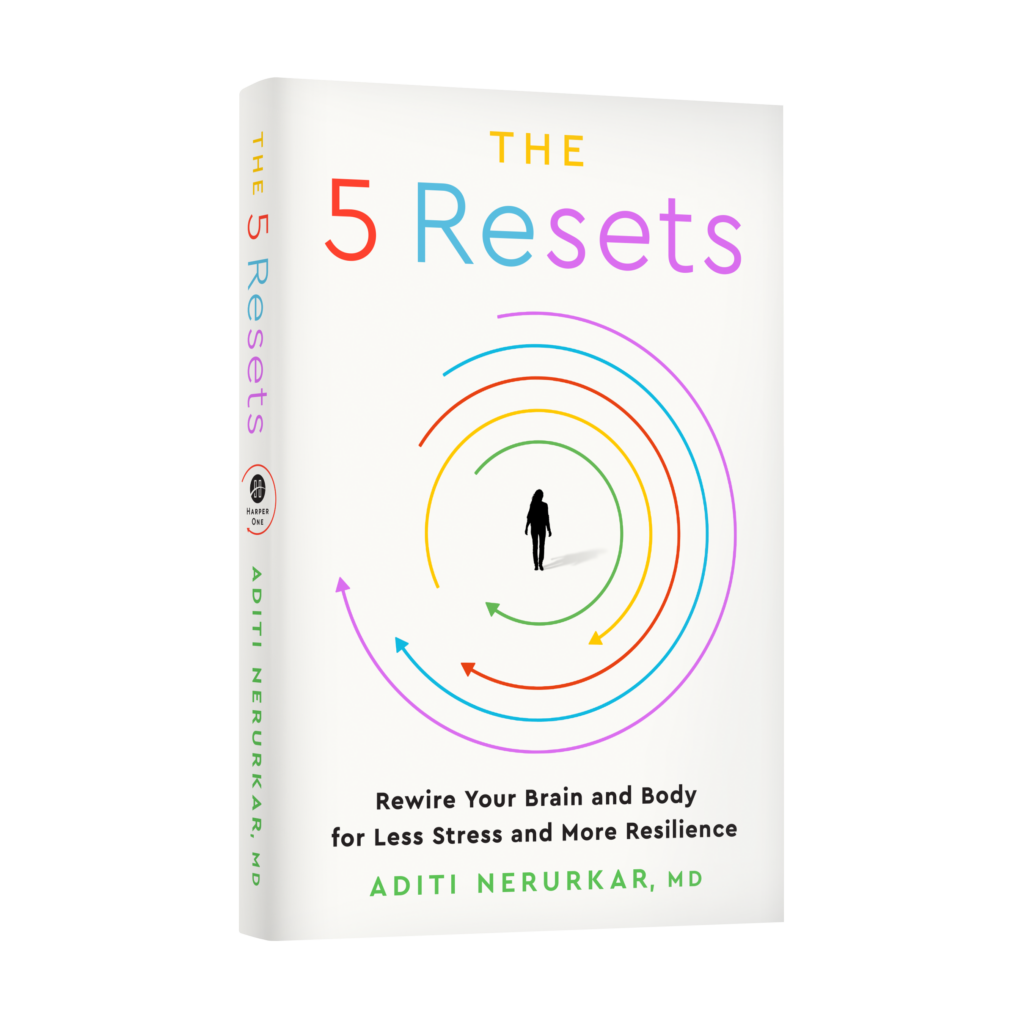From a strictly scientific point of view, resilience is your innate biological ability to adapt, recover, and grow in the face of life’s challenges. But resilience doesn’t function in a vacuum. You need stress for resilience to show itself.
Resilience can be defined as “the ability to cope with shocks and keep functioning in much the same kind of way as before.” It is a healthy biological phenomenon. But it’s often confused with toxic resilience, which is a warped view of this definition and can include unhealthy behaviors like pushing past boundaries, productivity at all costs, and a mind-over-matter mindset. It’s the Energizer bunny mentality, and it can get you into trouble. The foundation of our modern world is built on toxic resilience. As a child in school, you were rewarded for always holding it together. By adulthood, this is the norm whether you’re at home work, parenting, caregiving, or in your community.
I’ve witnessed this false expectation every day in my clinic. A patient will walk in with a big smile on their face. They seem happy, relaxed, and calm. But then the door closes and they burst into spontaneous tears the moment they have some privacy with me. No matter their age, occupation, or family background, once they feel they can tell the truth about their stress, the floodgates open. It’s far too common and a real indicator of just how universal yet isolated we feel in our personal stress struggles. Another aspect of toxic resilience is that we feel shame about needing advice or help, so we resist asking for it until we have no choice. But everyone comes to this realization in their own time.
Miles came to see me at the insistence of his wife because she was concerned with his inability to sleep well. He was sleeping about four hours per night, and for the previous few months he’d been running on fumes most days, with dark circles under his eyes. As a manager of twelve employees in a software engineering division, and with two young children at home, Miles was starting to have other health issues, like high blood pressure.
He perched on the edge of the chair in my office, waiting for the appointment to be over.
“Look, I know my wife is worried,” Miles said, trying to make light of it. “I’m going to be fine. I’m under a lot of pressure at work. You know technology. I have to keep up with constant changes. I’m responsible for keeping my division on pace.”
“Which has to be difficult if you’re going into work without much sleep,” I said.
Miles waved the comment away. “Listen doc, I was a champion athlete in college. I would get up to train at four in the morning, every morning. I’m used to pushing through to get results. I’ll probably sleep better once things are back on track at work and once my kids are a little older and not as dependent.”
“In the meantime, there are some simple techniques that could help you feel better,” I offered.
“I’m sure those are great for your other patients,” Miles said, “but I’m okay. My dad never missed a single day of work. I’m built from sturdy stock. I’m only here because my wife asked me to see you. So it was nice to meet you, doctor. Have a great week.”
I wished Miles well and watched him walk back out through the waiting room.
Miles was primed with another aspect of toxic resilience. We’ve learned to tell ourselves that we’ll engage in self-care at some future time—when we aren’t so busy, when the kids are grown, when we’ve reached a work goal, when the pressure is off, when we have a vacation week, when there’s more money in the bank, when we retire. Regrettably, we give self-care the least attention when we need it the most.
Toxic resilience has been around a long time. In the depths of the Great Depression, the politician Al Smith is credited with saying, “The American people never carry an umbrella. They prepare to walk in eternal sunshine.” Eternal sunshine is a lot of pressure to live up to, and it’s the perfect slogan for a culture that rewards toxic resilience. The 5 Resets aren’t about learning to walk through eternal sunshine. That’s not realistic, feasible, or even sustainable.
Unlike Miles, you may be at a place where you’ve realized that the levels of stress and burnout in your life are no longer sustainable. You want to see measurable and daily improvements in the way you feel. The 5 Resets provide all the tools you need to create tangible and concrete change so you can overcome your unhealthy stress and reveal your innate and wondrous resilience—the real kind.





Your Personalized Stress Score can offer you a glimpse into how your stress may be affecting your everyday life. This stress quiz isn’t meant to diagnose or treat your stress, but rather, as an educational tool which can give you some insight into how stress manifests for you. Does your stress feel healthy, manageable and contained—in proportion to the demands of your everyday life? Or does it feel like runaway stress, imbalanced and out of proportion to your everyday life? Your Personalized Stress Score can help you discern the differences in how adaptive stress and maladaptive stress may be showing up for you. You’ll notice that the higher the score, the higher the likelihood of maladaptive stress, and the lower your score, the lower the likelihood of maladaptive stress. Now that you’ve gotten your initial Personalized Stress Score in hand, how do you feel? Surprised, overwhelmed, confused? Or maybe all of these?
When my patients have answered these questions as a check-in for their stress, they’re often disheartened by their high scores. The first thing they say is, “But I’m resilient! I’m not supposed to feel stressed. That doesn’t happen to people like me.” Does that sound familiar? Yeah, it does to me too. Those were the same words I said to my doctor during my own stress struggle. The truth is, an unhealthy amount of stress can happen to anyone, and the first step to overcoming it is to have a healthy dose of self-compassion as you navigate this new world.

Excerpted from The 5 Resets: Rewire Your Brain and Body for Less Stress and More Resilience by Dr. Aditi Nerurkar and reprinted with permission from HarperOne, an imprint of HarperCollins Publishers. Copyright 2024.


